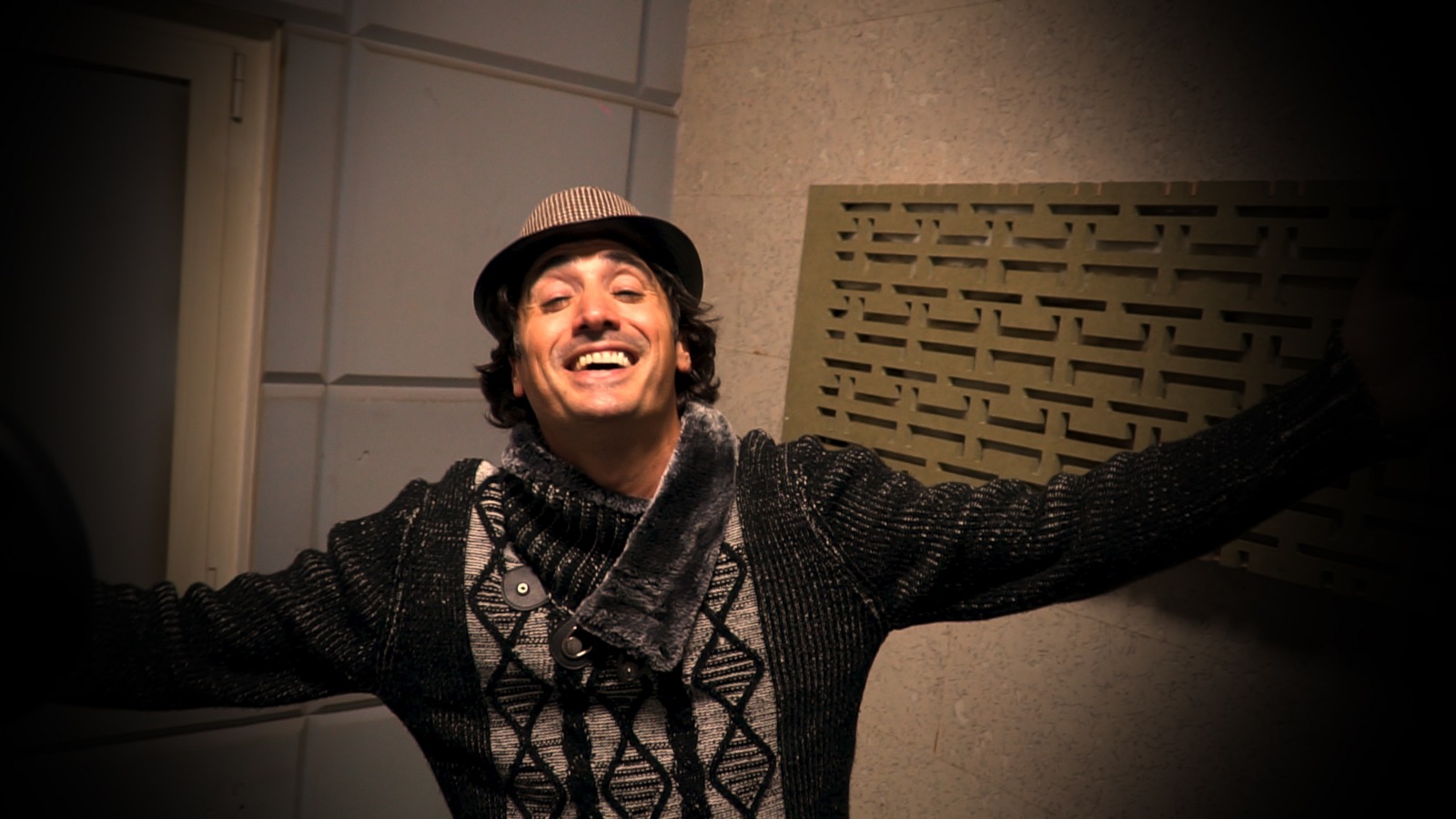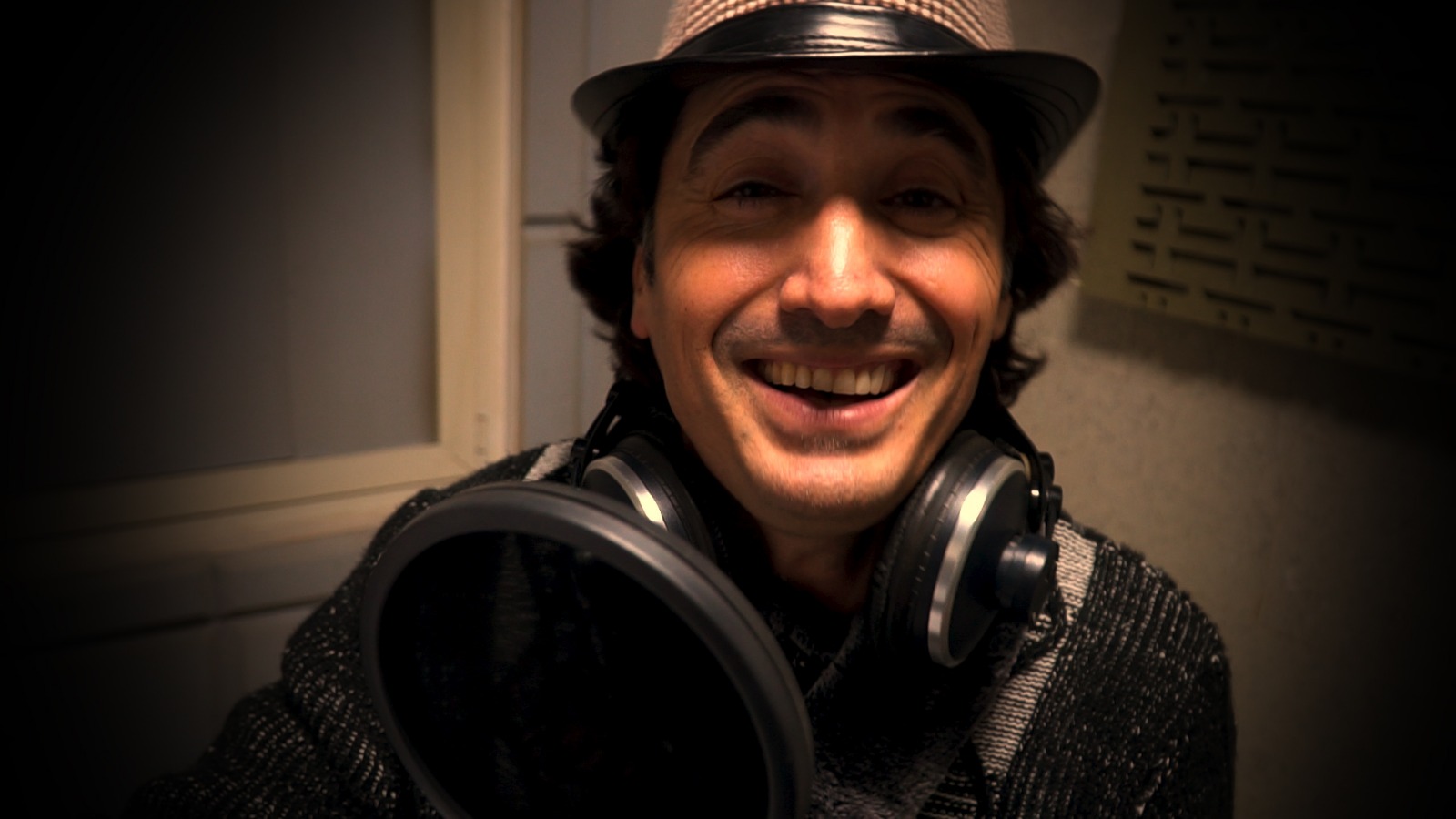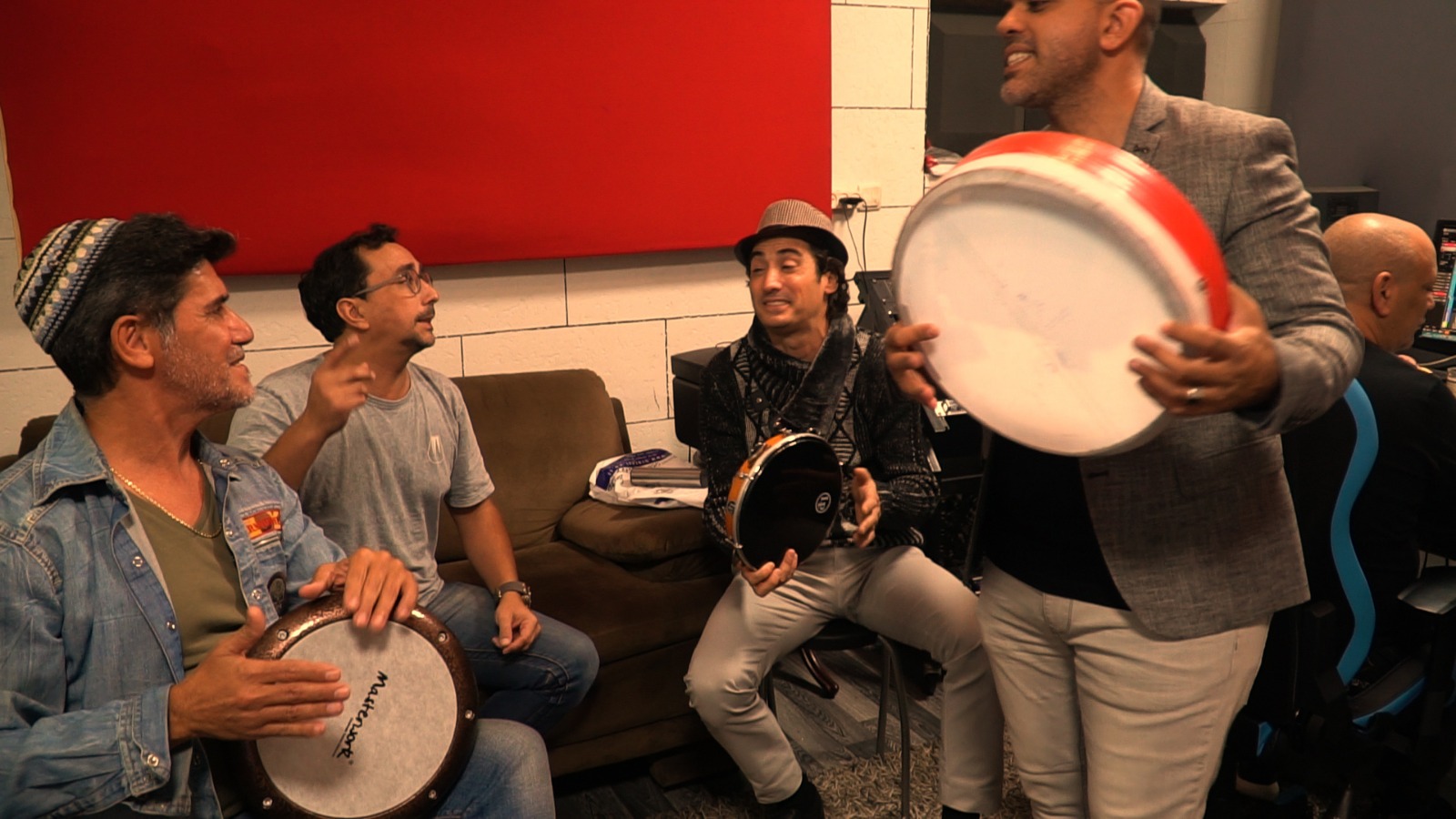"My Faith is the Purpose of My Life": Eric Mashali Sings and Believes
Eric Mashali grew up in a traditional family and defines himself as a believing Jew who lays tefillin and prays. In a unique interview, he talks about faith, his connection to Moroccan culture, his new song "Ya Baba", and his nostalgia for the 1980s: "I miss every decade of my life when my mother was alive."
 (Photo and editing: Eli Abutbul, The Green House)
(Photo and editing: Eli Abutbul, The Green House)"If an actor does not reinvent himself, he will age frustrated," says actor and creator Eric Mashali with a smile, who himself hasn't stopped reinventing since entering the entertainment industry. "A person needs to be happy with his lot, and to achieve happiness, you need to do something that will make you happy, you need to create," he says.
Mashali, 44, grew up in the northern periphery, in Kiryat Ata, during its days as 'Kfar Ata'. The youngest of five siblings, he burst into consciousness over two decades ago. Today, he lives with his wife and two children in Ashkelon after 27 years in Tel Aviv. "Today, I mainly focus on singing with the 'Oriental' band I founded, performing at henna ceremonies and weddings, and I also play several roles in theater." In his band, Mashali sings and plays the oud. Additionally, he taught himself to speak Moroccan. Recently, he participated in a project by singer Lior Almaliah, leading to the song 'Ya Baba' in honor of the Baba Sali anniversary. Although unintended, Mashali contributes to reviving the Moroccan language, especially among the third generation who don't speak it. "I learned the language on my own," he says, "I enjoy it a lot, and though I only had the basics at home, as I grew up, I taught myself. There are books and you can definitely learn. It's a rolling language, and I'm very proud to sing in Moroccan. The Moroccan spoken by Jews is filled with humor, a blend of Hebrew and Moroccan."
 (צילום ועריכה: אלי אבוטבול הבית הירוק)
(צילום ועריכה: אלי אבוטבול הבית הירוק)In Israel of 2019, to what extent is the Eastern culture accepted not as a gimmick but equal to the Ashkenazi-European culture?
"50% of the nation is of Eastern descent or has some Eastern background, so the openness to accepting Eastern culture exists among half the population. In the past, it wasn't recognized that half the people are immigrants from Arab countries. There wasn't openness because it wasn't given space. The Eastern half protected itself through suppression until it exploded, and people said there was no reason to be ashamed of flavors and colors that touch a sensitive nerve, remind them of grandparents, and bring joy. Like someone of Ashkenazi descent enjoys cantorial music, someone with a Moroccan family background enjoys music from their homeland. This half wasn't given a place, and there was a surge, which rose until after 60 years it exploded and spread across the nation, including the Ashkenazi half. Today, the Eastern color and oriental sounds are so prevalent they're in the Ashkenazi home too. It’s not just open - it's widespread."
Today, after years in the industry, do you dream of performing in theaters like Habima or Cameri in Moroccan?
"Not at all. I'm old school. Where I am today is home, and Cameri should strive hard for me to perform there. It's true that I once thought the opposite. Today, in my old age and wisdom, I understand they should seek me - not the other way around."
This is how we lived in the periphery
Mashali left the northern periphery for Tel Aviv at 17. His father still lives in Kiryat Ata, and his mother, who passed away about a year ago, is buried there.
A few years ago, Mashali embarked on a spiritual journey documenting the secrets of faith through a pilgrimage to the Baba Sali's anniversary. In his film, he shares childhood experiences from his mother's home in Kiryat Ata: "As a child, I would wake up to my mother's prayers," he narrates in his documentary. "As was her habit, before washing her face, she'd open her window, praying to the heavens. Her prayers were always seasoned with the names of righteous figures like Rabbi Shimon Bar Yochai, Rabbi Meir Baal Hanes, and the Baba Sali. At times, it seemed she conversed with them. Other traditions, such as lighting candles, visiting righteous people's graves, and participating in pilgrimages, joined this habit from my youth. They all share a common thread – faith."
Mashali was raised in a traditional family. He defines himself as a believing Jew. He regularly lays tefillin and prays. "I am a believer; my faith is the purpose of my life as it is for us all. I made two documentaries on righteous people's graves, one on the anniversary of Rabbi Shimon Bar Yochai, and the other outlining the character of the Baba Sali. My journeys to righteous people's graves were not only a spiritual journey but an anthropological one that became my thesis."
 (צילום ועריכה: אלי אבוטבול הבית הירוק)
(צילום ועריכה: אלי אבוטבול הבית הירוק)Was there an innocence in the '80s that's been lost over the years? Do you miss it?
Mashali misses the simplicity of the past but above all else, his childhood. "I miss every decade of my life when my mother was alive. So when I miss those years, I'm mostly missing my mother. And indeed, those years were marked by deep innocence and values that, unfortunately, faded with the decade."
In an era where creators and artists gain fame without necessarily working their way up, how hard is it to be an actor and artist?
"I said it then, and I say it now – as there are reality shows today, there were shows 15 years ago that created stars. We call it '5 minutes of fame'. The question is, can someone build a long-standing career on 5 minutes of fame? It's very rare. After the fame fades - they must embark on an endless, strenuous journey that I continue to this day. Most will disappear as they came, although I wish no one to vanish, but rather that everyone builds himself like an artist should. When an artist wakes up, he must ask himself daily if what he did was good, sufficient, and correct. To make a living from this work will forever, until my last day, be a challenging task.
"In my shows, I tell how I was a Moroccan singer for Israeli personalities. A person works hard every day to have some comfort in retirement. When reaching retirement, they spend all their money on a caregiver, 'Look at me,' I say, 'I have no pension or caregiver's privilege because I was a singer. Who will pay my pension now? What I have is a small disability allowance from National Insurance, and I earn a little from selling vegetables and by the grace of Hashem.'"
 (צילום ועריכה: אלי אבוטבול הבית הירוק)
(צילום ועריכה: אלי אבוטבול הבית הירוק)What does an actor go through when he has no work or feels less relevant?
"Heaven forbid, these are very bad and difficult times. However, these times require the artist to know that whether noticed or not - no one will look after his welfare but himself. Today, at the peak of my fame and career, I do not receive a salary from anyone but my own work. No one offers me huge roles every day."
In recent years, you've reinvented yourself.
"An actor who doesn’t reinvent himself will age and die frustrated. One needs to be happy with what they have, and to do this, you need to create and do something that brings joy. My internal satisfaction is knowing how to target my audience. Today, I know how to appeal to everyone. Before, it was aimed at a specific group. Today, I have more tools to assess what the audience enjoys, not entirely accurately, but I have grown wiser."
After the curtain falls and the applause fades, what is the real satisfaction left for an actor?
"The enduring satisfaction isn't in the applause. An artist has very few points where he finds satisfaction in the art he creates. The cheap satisfaction of applause replaces personal inner fulfillment. The happiness of the audience in what I do is the most important thing; that's why I'm on stage, to entertain the audience, not myself. But every artist questions if they are personally satisfied with their art. I find it hard to believe such artists exist."

